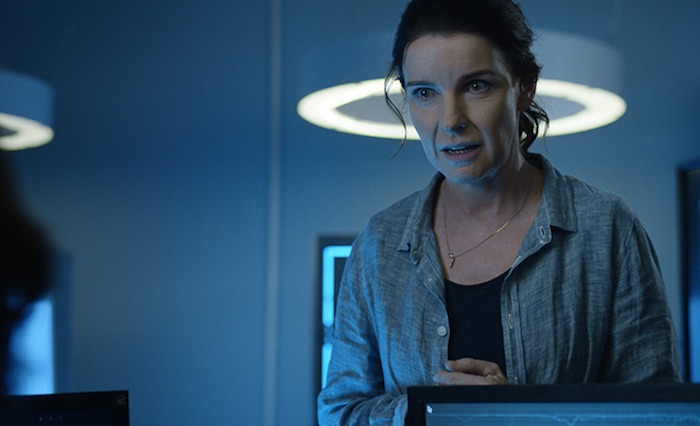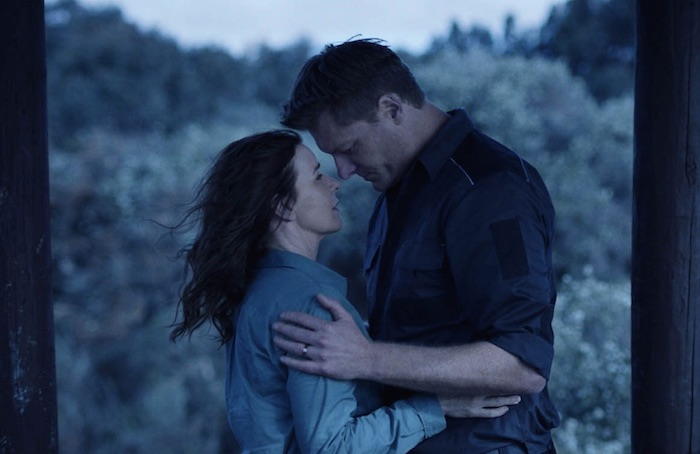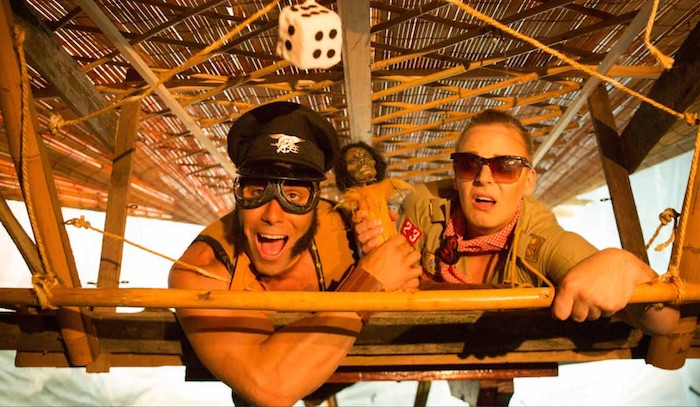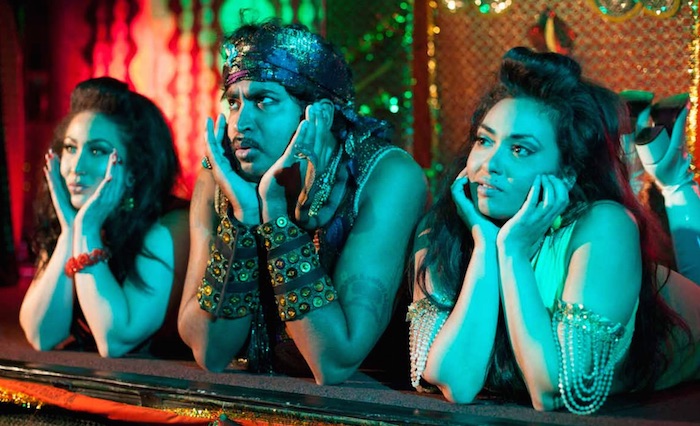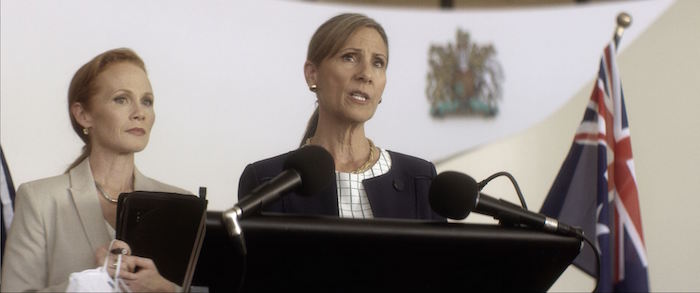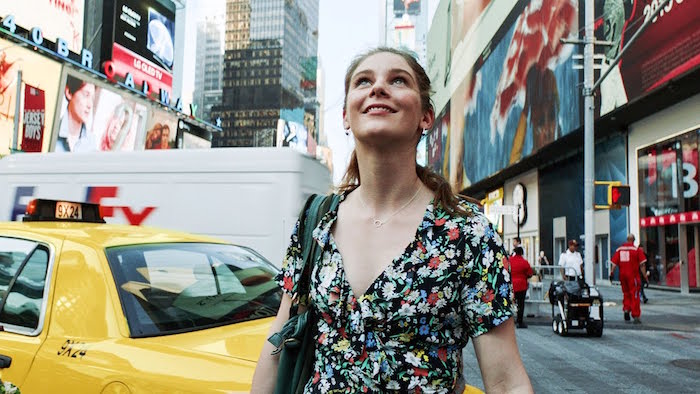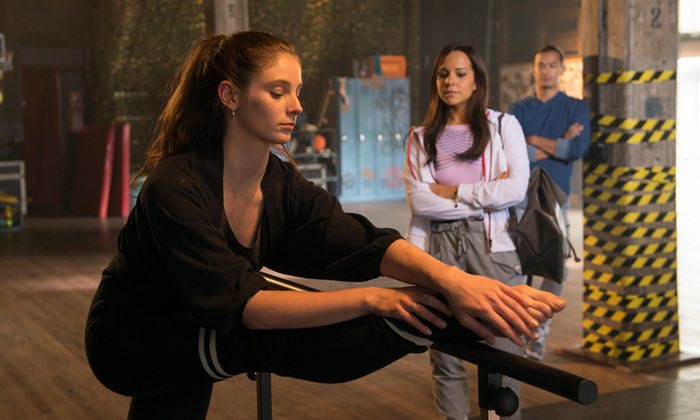LANDFALL
 Tuesday, November 21, 2017 at 6:30PM
Tuesday, November 21, 2017 at 6:30PM Stars: Kristen Condon, Rob Stanfield, Daryl Heath, Andy Bramble, Bailey Stevenson, Shawn Brack, Tony Bonner, Anthony Ring and Vernon Wells.
Writer/Director: Travis Bain
WORLD PREMIERE: Monster Fest, Sunday November 26 at 12.30pm at Melbourne’s Lido Cinema.
Rating: 3.5/5
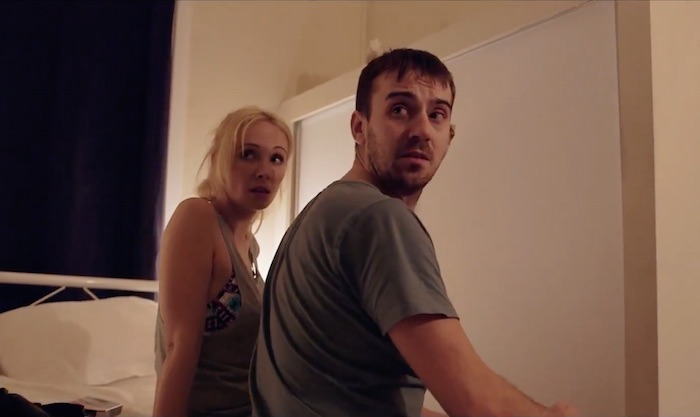
Pitching all the elements at just the right serious/comic tone to pull off a tongue-in-cheek thriller like Landfall is a tough ask; too much either way, neither works satisfactorily. So all credit to multi-hyphenate Travis Bain, who gives it a damn good shake in his slyly funny, convincingly twisty exercise in narrative acrobatics and Tarantino-esque pop culture riffing.
Set against the same F.N.Q./tropical cyclone backdrop as his debut Scratched (2005), the director introduces young couple Maisie (Kristen Condon) and Dylan (Rob Stanfield) in a beachfront home with time running out. Just as they decide to head for higher ground, an ambulance, its lights darkened, pulls into the driveway. Imposing themselves on the young couple are three unsavoury types, decked in paramedic garb – the badly injured Ringo (Bailey Stevenson), a gravelly-voiced George (Andy Bramble) and the weapons-wielding leader, Paul (the imposing Daryl Heath).
The group dynamic is skilfully constructed, with barely a breath taken before all the elements are in place – the details of the crime committed, the McGuffin in the corner of the room, the backstory that binds the diverse group together. Bain does not allow the premise’s occasionally creaky credibility to sneak into his story until well into the second act, when burly cop Wexler (Vernon Wells) becomes entangled in the increasingly convoluted intrigue. The extent to which Bain's script explores all possible avenues for his characters and their motivations becomes a tad exhausting, though ultimately answers all the questions he poses.
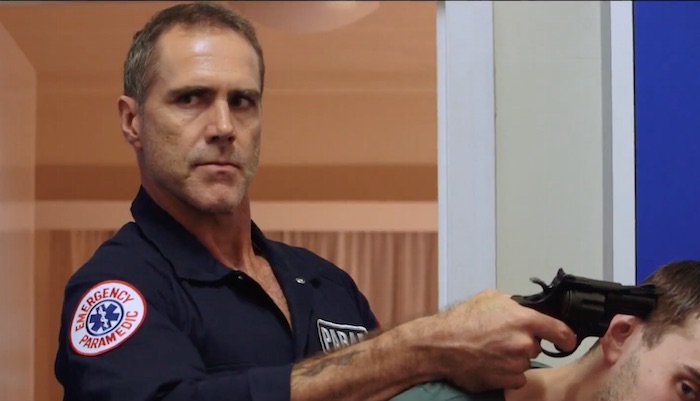
But the young director has more on his mind than uncoiling genre machinations. A film-buff’s pedigree begins to reveal itself, notably in a terrifically funny piece of dialogue between Paul and Wexler, in which the criminal riffs on his favourite movies. Heath’s thuggish brute offers up (in this critics opinion) a long overdue takedown of The Shawshank Redemption (1994), which Bain then recalls in the film’s final moments; the biggest laugh comes when Paul drops one particular fave, allowing Wells a priceless few frames of film to respond.
Spinning his violent home invasion thriller off into QT territory is a bold move; some viewers and critics may be less forgiving of the dogleg tonal turn. However, what Bain does achieve with an especially assured touch is a knowingness that lifts it out of its ‘competent B-thriller’ confines and ups its value as genre homage.
On those terms, Landfall unexpectedly plays like a mash-up of two undervalued Nicholas Cage pics – the goofy three-crims-on-the-run comedy Trapped in Paradise (1994), and the actors’ own twisty kidnapping thriller, Trespass (2011), opposite Nicole Kidman. The film is also under the spell of Cape Fear (1991), Reservoir Dogs (1992) and The Ref (1994), to name just a few.
The other benefit brought from accepting Bain’s pitch-black comedy stylings is that several performances sharpen from broad caricature into cutting satire; best amongst them are the terrific Heath, Condon’s counter-intuitive damsel-in-distress and young Stevenson, as the firebrand Ringo. Further confirmation of the pic’s cheekiness are the cameo turns from Shawn Brack and Australian acting legend Tony Bonner as mates, ‘Trev’ and ‘Kev’.
 Australian film,
Australian film,  Film Festival,
Film Festival,  Monster Fest,
Monster Fest,  Tthriller
Tthriller 



